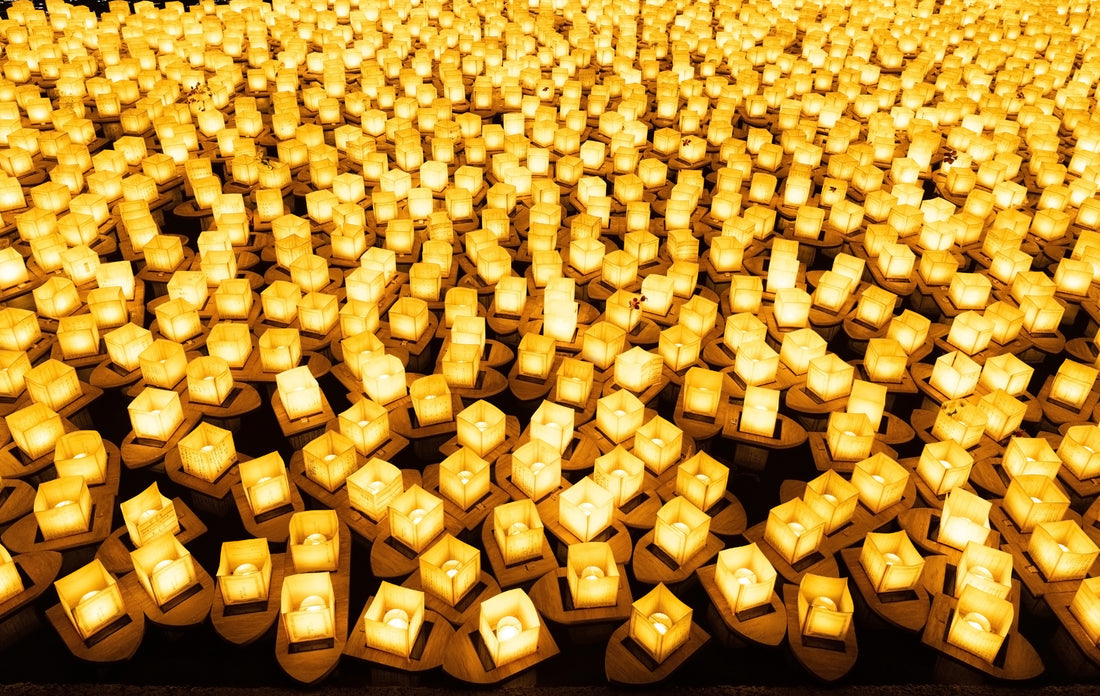What is Obon?
Obon Festival (お盆), or “Bon” as it is also known, is a 3-day lantern festival celebrated annually in Japan. It is unique to Japanese Zen Buddhism: a branch of Mahayana Buddhism that developed from Chinese Chan Buddhism. The exact dates of when the festival takes place vary depending on region, but it is typically celebrated in mid-August.
The purpose of Obon and the multi-day celebration is to honor one's ancestors. It is believed that, for the few days of the Obon holiday, the spirits of those who have passed return to visit the living, so many Japanese people gather with family and friends to celebrate and welcome their arrival. Although there is some uncertainty about the precise origins of the Bon Festival, it is believed that the tradition began in approximately the 16th century.

How is it Celebrated?
Obon is an eclectic celebration with some aspects that could be compared to Mexico’s Dia De Los Muertos or “Day of the Dead”. While both of these events technically center around death and provide a way to mourn those who have passed (both long ago and recently), they are not morbid or sad holidays. Instead, these occasions are celebrations of life.
All across Japan, in major cities such as Tokyo, Kyoto, and Nagasaki, Obon festivals are held in which millions of citizens and tourists gather to view lantern displays, visit vendors, eat, drink, see traditional music and dance performances (such as the Bon Odori; 盆踊り), and much more.
During Bon, families will also hold reunions and spend time visiting and cleaning the graves of loved ones, making it a popular time for travel as people journey across the country to visit loved ones - both alive and passed. Buddhist temples will often serve as host for some of the festivities as well, where monks will leave offerings for the visiting spirits.
Although the specifics of the festivities can vary widely depending on the specific festival, one common tradition is the floating of Obon lanterns down a body of water, like a river, at the end of the festival. This is done to help guide the visiting spirits back to their realm, and is part of why the lanterns are such a recognizable element associated with Obon traditions. Being the second most common religion in Japan after Shinto, it is of no surprise that Obon and other Buddhist holidays are such significant events in Japan.

